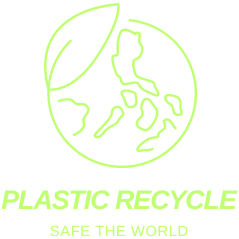
Plastic recycling is a crucial component of sustainable waste management. By diverting plastic waste from landfills and incinerators, recycling can significantly reduce its environmental impact. Here are some of the key benefits of plastic recycling:

1. Conservation of Natural Resources
- Reduced Demand for Fossil Fuels: Recycling plastic reduces the need for new plastic production, which consumes significant amounts of fossil fuels.
- Preservation of Raw Materials: Recycling conserves natural resources, such as crude oil, natural gas, and salt, used in the production of new plastic.
2. Energy Savings
- Reduced Energy Consumption: Recycling plastic requires less energy than producing new plastic from raw materials. This energy savings can help reduce greenhouse gas emissions.
- Increased Efficiency: Recycling facilities often use energy-efficient technologies to further reduce their environmental footprint.
3. Environmental Protection
- Reduced Landfill Waste: Recycling plastic helps to divert waste from landfills, reducing the risk of pollution and methane emissions.
- Prevention of Ocean Pollution: Plastic waste can end up in oceans, harming marine life. Recycling helps to prevent this pollution.
- Reduced Greenhouse Gas Emissions: By reducing the demand for new plastic production, recycling can help to mitigate climate change.
4. Economic Benefits
- Job Creation: Plastic recycling facilities create jobs in various sectors, including waste management, manufacturing, and transportation.
- Economic Growth: Recycling can contribute to economic growth by creating new industries and markets for recycled plastic products.
- Reduced Costs: Recycling can help to reduce the costs associated with waste disposal and landfill management.
5. Resource Recovery
- Material Recovery: Plastic recycling allows for the recovery of valuable materials, such as metals and glass, that are often embedded in plastic products.
- Energy Recovery: Some recycling processes can also recover energy from plastic waste through processes like incineration with energy recovery.
6. Innovation and Product Development
- New Materials and Products: Recycling can lead to the development of new materials and products made from recycled plastic, such as recycled plastic building materials and clothing.
- Product Design Improvements: Recycling can encourage manufacturers to design products that are easier to recycle and made from recyclable materials.
7. Community Engagement
- Environmental Awareness: Recycling programs can raise awareness about environmental issues and promote sustainable practices.
- Community Involvement: Recycling initiatives often involve community participation, fostering a sense of ownership and responsibility.
In conclusion, plastic recycling offers numerous benefits, including environmental protection, economic growth, and resource conservation. By supporting plastic recycling programs and making conscious choices as consumers, we can help create a more sustainable future.
read more : The Environmental Impacts of Plastic Waste




